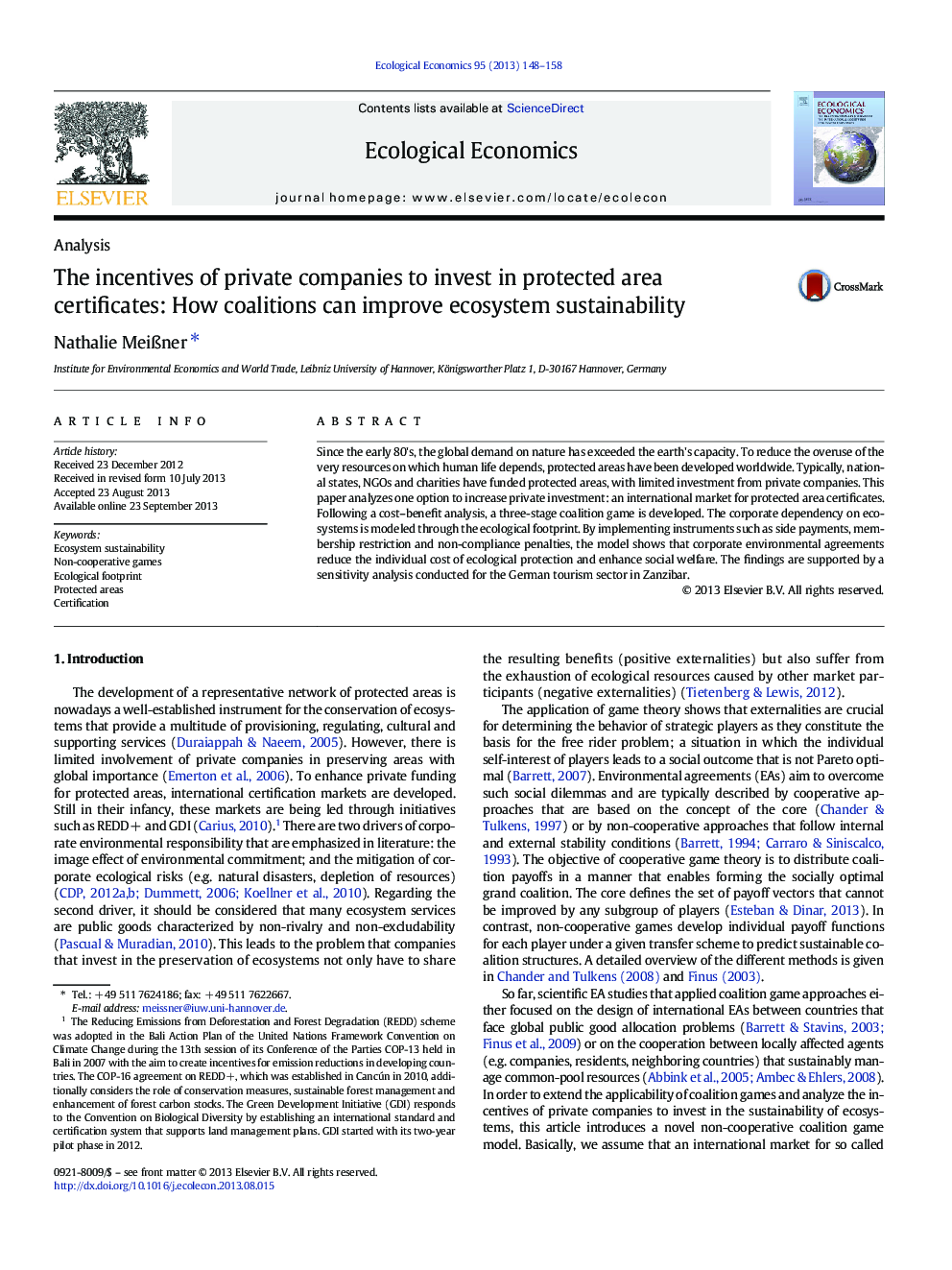| Article ID | Journal | Published Year | Pages | File Type |
|---|---|---|---|---|
| 5049789 | Ecological Economics | 2013 | 11 Pages |
â¢Protected area certificates that offset the impact on ecosystems are developed.â¢A non-cooperative coalition game is proposed to evaluate private certificate demand.â¢The corporate dependency on ecosystems is modeled via ecological footprint index.â¢Certification of environmental performance reduces free riding incentives.â¢Voluntary but binding agreements increase corporate investments in protected areas.
Since the early 80's, the global demand on nature has exceeded the earth's capacity. To reduce the overuse of the very resources on which human life depends, protected areas have been developed worldwide. Typically, national states, NGOs and charities have funded protected areas, with limited investment from private companies. This paper analyzes one option to increase private investment: an international market for protected area certificates. Following a cost-benefit analysis, a three-stage coalition game is developed. The corporate dependency on ecosystems is modeled through the ecological footprint. By implementing instruments such as side payments, membership restriction and non-compliance penalties, the model shows that corporate environmental agreements reduce the individual cost of ecological protection and enhance social welfare. The findings are supported by a sensitivity analysis conducted for the German tourism sector in Zanzibar.
